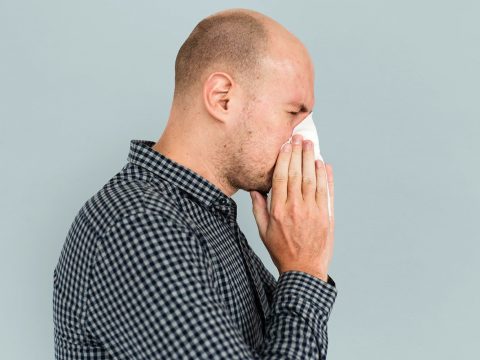- 979-485-9287
- office@bvallergy.com
-
 979-251-7804
979-251-7804
What You Didn’t Know About an Allergist

Best Antibiotics to Treat Sinus Infection
December 5, 2018
Pollen Allergy
January 7, 2019Many people think about allergy shots when they think about an Allergist. But there are many parts to the immune system, several ways to mount an allergic reaction, and multiple ways to treat most reactions.
An Allergist is a physician who has completed 4 years of medical school, followed by a 3-year residency in Internal Medicine or Pediatrics (or both), and finally a 2-3 year specialty training program in Allergy and Immunology. This also includes a large portion of training in allergy and asthma care.
Treating Nose and Eye Allergies
If you haven’t been trained in medicine, it may not be intuitive how many parts there are to the immune system. If you have allergies in the nose and eyes, then you are experiencing a response caused by allergic antibodies, known as Immunoglobulin E (IgE). This response triggers mast cells to release histamine and several other chemical messengers, causing your symptoms.
A similar reaction is involved in much of asthma. This type of allergy can be identified by allergy testing through either skin allergy tests or blood tests.
Allergies often can be treated with antihistamines taken as pills or nasal sprays, and also responds after several days to a steroid shot, steroid pills or steroid nasal sprays.
If you want to plan ahead to address your symptoms in the future, many allergic reactions can often be reduced after months of allergy treatment with immunotherapy (allergy shots that desensitize you to specific allergens) or drops taken under the tongue. Unfortunately, the drops are not as effective and only work for a limited number of allergens at one time.
Treating Food Allergies
Food allergies often involve the same type of reaction, and those can be tested in the same way. Unfortunately, common food allergies can also involve other parts of the immune system, like eosinophils (a different type of white blood cell), or sometimes T cells, which are discussed below.
Food allergy testing for these other types of reactions has had limited success. Some people actually have to experiment with varying their diet to try to identify the culprit(s), and the experimentation can be complicated and take a long time.
Treating Skin Contact Allergies
If you have ever had an allergic reaction to poison ivy or metal, then you are suffering from a response by a totally different part of the immune system. These reactions are caused by T cells, which are a subset of lymphocytes, which are, in turn, a type of white blood cell.
T cells attack when they sense something foreign. If they have learned that poison ivy is foreign, they will attack the affected skin. Because these cells don’t release histamine, the antihistamine medications don’t help.
You can have similar reactions to metals, chemicals touching your skin, or even ingredients in your toothpaste, soaps, shampoo, or makeup. Some people have even become allergic to ingredients in the medications put on their skin to treat these allergy symptoms. This type of allergy is most simply called a skin contact allergy.
Unfortunately, you can react in places where you don’t even have contact with the allergen. For example, if you get poison ivy on your hand, every part of the body that had previously reacted to poison ivy can get reactivated.
There is a different type of skin testing that is done for skin contact allergies, and it involves placing patches of potentially offending ingredients on the skin for 48 hours. The allergist then looks for a reaction when the patch is removed, as well as a delayed reaction over the next couple of days.
Allergy and asthma treatment involves avoiding exposure and suppressing the immune response when it happens (generally with steroids).
Treating Other Allergies
There are still more parts of the immune system. Sometimes people with swelling problems have a defect in the complement system (part of the immune system), or the associated products bradykinin and kallikrein. Patients with severe eczema can have defects in several areas, some of which have only recently been discovered.
There are many defects that can lead to an inadequate immune response, and more are being found every year.
Get the Proper Treatment Today!
If you need help with allergies, asthma, or challenging problems in the immune system, then I recommend that you consult a physician that has been fellowship-trained in Allergy and Immunology.
Dr. Paul Jantzi, a board-certified allergist and immunologist, provides affordable and effective allergy treatments in Texas with office locations in Bastrop, Brenham, College Station, Columbus, Giddings, and La Grange.
You can contact him at any of the Brazos Valley Allergy & Asthma Clinics for professional allergy, asthma, and immunology services.




